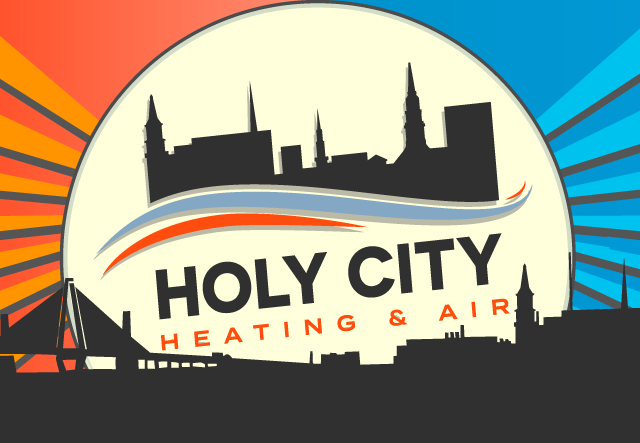Winter months can be harsh, especially when your furnace decides to fail. A malfunctioning furnace isn’t just an inconvenience; it can also be dangerous for you and your family. Knowing the signs that indicate your furnace needs repair can help you act fast and avoid being caught in the cold. Understanding what to do in case of an emergency and taking preventive measures are both key to ensuring your home stays warm and safe.
Common Signs Your Furnace Needs Emergency Repair
Unusual Noises
Strange noises coming from your furnace are often a sign of trouble. If you hear banging, clanking, or screeching, it could indicate loose parts, a failing blower motor, or other issues. Rattling sounds may mean there are loose screws or ductwork. Addressing these noises quickly can prevent more severe damage and costly repairs.
No Heat Production
If your furnace is running but not producing heat, this is a critical issue that needs immediate attention. Check if the thermostat is set to “heat” and if the temperature setting is correct. A lack of heat could stem from a malfunctioning thermostat, issues with the pilot light, or other complex problems. Quick action is essential to restore warmth and safety in your home.
Strange Smells
Odd odors emanating from your furnace can signal various severe issues. A burning smell often indicates an overheated motor or wiring problem, which poses a fire risk. Musty odors might mean mold growth in the ductwork. If you detect a rotten egg smell, this could signify a gas leak, and you should immediately evacuate your home and contact authorities. Never ignore unusual smells coming from your furnace.
Immediate Steps to Take When Your Furnace Fails
Check the Thermostat Settings
Before assuming the worst, verify that your thermostat settings are correct. Ensure it’s set to “heat” and that the temperature setting is higher than the current room temperature. Sometimes, a simple battery change can fix the problem. If the settings are correct but still don’t work, there could be a more significant issue requiring professional assistance.
Inspect the Circuit Breaker
A tripped circuit breaker might be the reason your furnace fails to run. Go to your home’s electrical panel and check for any tripped breakers. Flip it back to the “on” position if you find one. If the breaker trips again, do not attempt to reset it repeatedly; instead, this indicates an electrical issue that needs professional intervention.
Look for Visible Issues
Perform a quick visual inspection of the furnace. Look for any signs of damage, loose wires, or disconnected parts. Ensure that the pilot light is on for gas furnaces. If you find anything out of place, take note, but do not try to fix it yourself. Leave this to our professionals to handle safely and efficiently.
Taking these immediate steps can help identify minor issues and provide temporary fixes. However, always seek professional help for significant problems to ensure safety and proper furnace repair.
Temporary Heating Solutions While Waiting for Repairs
Utilize Space Heaters
When your furnace fails, using space heaters can provide temporary warmth. Place space heaters in the most used rooms to make the situation more bearable. Ensure they are operating correctly and keep them away from flammable materials. Never leave space heaters unattended, especially around children or pets.
Bundle Up with Extra Layers
Keeping warm can be as straightforward as dressing in additional layers. Wear heavy clothing, use extra blankets, and close off any unused rooms to conserve heat. Sealing gaps under doors and around windows can also prevent heat from escaping, helping you stay more comfortable while waiting for furnace repairs.
Use Portable Generators Safely
In case of a prolonged furnace failure, a portable generator can be useful. However, using it safely is crucial. Always operate generators outside to avoid carbon monoxide poisoning and keep them away from windows and doors. Ensure your home has working carbon monoxide detectors, and follow the manufacturer’s guidelines for safe use.
Preventive Measures to Avoid Future Furnace Emergencies
Regular Maintenance Checks
Regular maintenance is key to preventing furnace emergencies. Schedule annual inspections with our professionals to identify and fix minor issues before they become major problems. Routine checks can also improve your furnace’s efficiency and lifespan.
Change Air Filters Frequently
Dirty air filters can cause your furnace to work harder, leading to potential breakdowns. Change your air filters every one to three months, depending on usage and the type of filter. Clean filters ensure proper airflow and reduce the strain on your furnace, helping to avoid emergency repairs.
Keep Vents Unobstructed
Ensure that all vents in your home are unblocked to allow for proper air circulation. Furniture, drapes, and other objects can obstruct vents, making your furnace work harder to heat your home. Regularly check and clear vents to maintain efficient operation and minimize the risk of furnace issues.
Conclusion
Furnace emergencies can disrupt your home and compromise your comfort. Recognizing the warning signs like unusual noises, no heat production, and strange smells can prompt timely action and prevent more serious problems. Taking immediate steps such as checking the thermostat settings, inspecting the circuit breaker, and looking for visible issues can sometimes resolve minor issues quickly.
While waiting for professional repairs, temporary heating solutions like space heaters, extra clothing, and the safe use of portable generators can provide essential warmth. Long-term preventive measures, including regular maintenance checks, frequent air filter changes, and keeping vents unobstructed, are vital in avoiding future furnace emergencies.
Ensure your home remains warm and safe by being proactive with furnace maintenance and repair. For expert furnace repair in Sullivan’s Island, reach out to Holy City Heating & Air, LLC. Our professionals are here to help you with reliable and efficient solutions. Contact us today to ensure your furnace operates smoothly throughout the winter.






